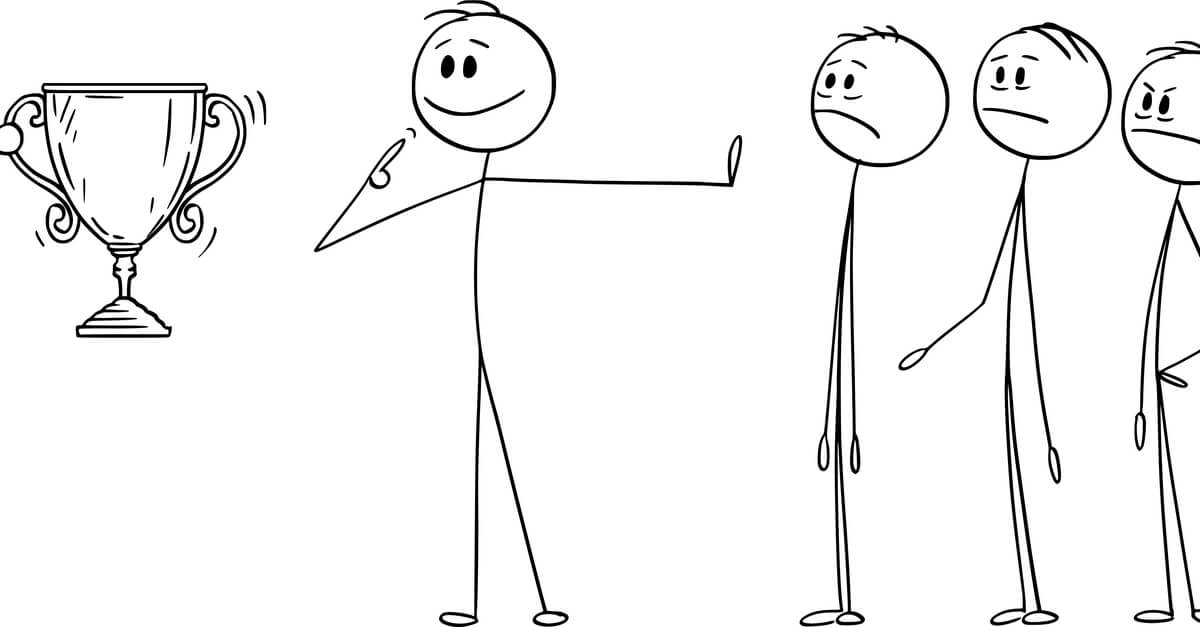The Dunning-Kruger effect is a cognitive trait that causes less competent people in a given field to overestimation their skills, and those who are more competent underestimate them. Ignorant.
Thus, those who fall victim to this feature have an illusion of superiority when they value their competition above average, and they also tend to underestimate the most competent.
- This effect was demonstrated in a 1999 study by Dunning and Justin Kruger.
- Two researchers from Cornell University’s Department of Psychology; however.
- A curious fact is that the Dunning-Kruger effect seems to be only suitable for Western societies.
- Asia.
- The researchers found that it was the exact opposite.
According to Dunning-Kruger’s theory, the explanation for this phenomenon is that incompetent people do not have the skills to distinguish themselves from those with more skills, people who do not have the knowledge or wisdom to perform well often do not know it. lack of awareness is attributed to a lack of metacognitive skills.
In other words, the incompetence that leads them to make wrong choices is the same one that deprives them of the ability to recognize that ability, they are unable to recognize it both in themselves and in others.
In fact, there are many intellectually mediocre people who make a living making us believe that they are the authors of a particular genius and that they are full of charisma, and in general they do so because they end up attracting us.
“An intellectual is usually someone who is not precisely distinguished by his intellect. He assigns himself this rating to compensate for the natural helplessness he feels in his abilities. It’s that real old saying, tell me what you’re bragging about and I’ll tell you what you’re missing. Is the bread of every day. Does the incompetent always present himself as an expert, the cruel as pious, the sinner as the righteous, the collector as a benefactor, the villain as a patriot, the arrogant as humble, the vulgo as elegant and ignorant as intellectual?. – Carlos Ruiz Zafon-
However, the results of Kruger and Dunning’s studies can have several interpretations, often the effect is as follows: of all people who perform a certain task, the less qualified feel very prepared to perform it. tend to depend less on their abilities.
We find the explanation for the success of these people in a captivating idea known as the sofisma of the just world, according to this idea, the results we get in life are always deserved, who think so believe that we are all in a certain sense. position because they deserve it on their merits. So even if that doesn’t seem to be the case, “something must have. “
What we’re seeing is that incompetent people think they’re better than they really are; however, they are generally not as good as those which, in fact, are good. It is important to note that Dunning and Kruger never claimed that the incompetents thought they were better than the competent ones. They just think they’re really better than they are, and they’re proclaiming it, too.
There is a great disagreement between how incompetent people perceive their own performance and how they actually are. This disagreement is much less for highly trained people, which is a serious problem for both groups.
For those who are not really skilled, the Dunning-Kruger effect prevents them from improving. Until they recognize their mistakes, they can never overcome them. On the contrary, for those who are already good, this feature prevents them from shining as brightly as possible. Self-confidence is fundamental to success.
If, for example, you’re not very good at languages, it can be hard to see, because the skills you’d need to distinguish someone who’s good from someone who’s not good are just the ones you’re missing. If you don’t hear the difference between two different phonemes, how would you know who’s capable of talking like a native and who’s not?If you understand a few words in a foreign language, how would you rate the size of your own vocabulary compared to others?
Or maybe you’ve heard someone talk about a topic that knows absolutely nothing about, on the contrary, those who really know something tend to be silent, this can even be seen in the media, in which more attention is given to people who show confidence, even if they are not right.
Simplified to the extreme, Dunning-Kruger’s theory can be understood as follows: while the ignorant think they are good, those who really are think they are incompetent.
There is no doubt that overcoming this effect is fundamental to our society, so if you ever feel that you have the truth, don’t shut up, it is necessary for the wise to start trusting each other more.

